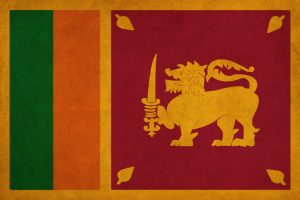Sri Lanka’s president on Wednesday appealed for patience amid the country’s worst economic crisis but promised brighter times ahead.
President Ranil Wickremesinghe said in a policy speech after inaugurating a new parliamentary session that he had been forced to make unpopular decisions to salvage the country’s finances, including by implementing measures such as higher taxes.
“Inflation rises during an economic crisis. The price of goods increases. Employment is at risk. Businesses collapse. Taxes increase. It is difficult for all sections of the society to survive. However, if we endure this hardship for another five to six months, we can reach a solution,” Wickremesinghe said.
He added that government employees would receive additional pay in the third and fourth quarters of the year and that the private sector would also be granted concessions. Wickremesinghe said that “if we continue in this manner … the public would become prosperous, with income sources increasing. The interest rate can be reduced. In another three years, present incomes can be increased by 75 percent.”
Sri Lanka is effectively bankrupt and has suspended repayment of nearly $7 billion in foreign debt due this year pending the outcome of talks with the International Monetary Fund for a bailout package.
The country’s foreign debt exceeds $51 billion, of which $28 billion must be repaid by 2027.
A currency crisis has also led to shortages of essential items like food, fuel, medicine, and cooking gas. Massive protests last year forced Wickremesinghe’s predecessor, Gotabaya Rajapaksa, to flee the country and resign.
Wickremesinghe has managed to somewhat stabilize the economic situation by reducing the shortages, and enabling schools and offices to function. But power cuts continue because of the fuel shortage, and the government struggles to find money to pay government employees.
India was the first bilateral creditor to announce financial assurances to the IMF and on Tuesday, the president’s office shared with the media a statement from the Paris Club — a group of creditor nations including the U.S., Britain, France, and others — giving similar assurances.
However, the IMF program hinges on China, which owns about 20 percent of Sri Lanka’s foreign debt and has given a two-year debt moratorium starting in 2022. But a visiting U.S. diplomat said last week that China has not done enough to meet IMF standards for loan restructuring.
“India has agreed to debt restructuring and has extended financial assurances. On the one hand, the Paris Club and India are continuing discussions. We are in direct discussions with China,” Wickremesinghe said.
“We are now working towards unifying the approaches of other countries and that of China. I express our gratitude to all the countries that support us in this effort,” he said.
Also on Wednesday, government doctors, university teachers, and other workers from ports and the power and petroleum sectors held protests, demanding the government lower income taxes.
Employees from the state-run power generation company also staged a demonstration in the capital, Colombo.
In his speech, Wickremesinghe also reiterated that he will ensure maximum power-sharing with ethnic minority Tamils to resolve a long-standing conflict.
Tamil rebels fought for an independent state in the country’s northeast for more than 25 years until they were crushed by the military in 2009. More than 100,000 people were killed in the conflict according to conservative U.N. estimates.
It is critical for Sri Lanka to resolve the ethnic conflict to win the international community’s support to rebuild the country’s economy.
Neighboring India has shown a special interest in resolving the problem due to internal pressure from its own nearly 80 million Tamils, who have linguistic, cultural, and family ties with the Tamils in Sri Lanka.
As Wickremesinghe spoke, hundreds of Buddhist monks demonstrated near Parliament against the proposal to share power with the Tamils. The monks said a government plan to give provincial councils power over policing and land would lead to division in the country.
Rev. Omalpe Sobitha, a leading Buddhist monk, said the president had no mandate to share powers and would be remembered as a “traitor” if he went ahead with the plan. A group of monks also burned parts of the constitution in protest.

































